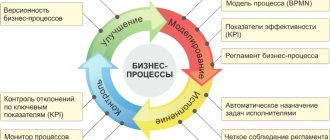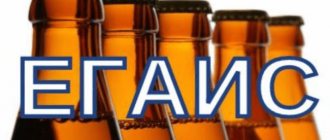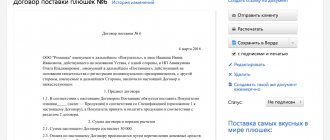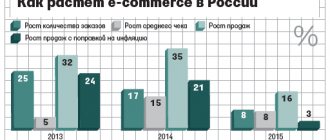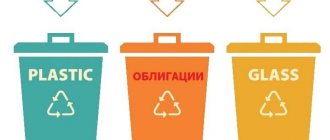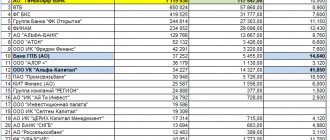The sale of consumer goods is one of the largest segments of the domestic economy, open to all categories of business. Entrepreneurs with minimal capital can enter the market. Register individual entrepreneurs for retail trade in a standard manner in just 3 days. The main task at this stage is the choice of taxation system.
Briefly about tax regimes
Since 2013, Russia has introduced a rule on the voluntary transition to special taxation systems. The changes affected retail trade participants. Now merchants can choose one of five options.
- OSN. Entrepreneurs will have to pay VAT, personal income and property taxes. For each of them, you will need to submit declarations regularly. The regime is considered complex and costly. The likelihood of tax disputes with businessmen in this group is the highest.
- USN. The transition to a single tax allows you to reduce reporting to one declaration per year. Businessmen need to use modern cash registers and keep a book of income. The simplified regime exempts from VAT, personal income tax, and in some cases from property tax. The payer has the right to determine the object of taxation.
- UTII. In most regions of the country, this regime was mandatory for retail trade. The system involves transferring tax on imputed income. The calculation base is determined based on the area of the point of sale or approved standards. Obligations to the budget do not depend on actual income. Declarations are submitted quarterly.
- PSN. Purchasing a patent for the period of activity is exempt from VAT, income and property taxes. Payers do not submit reports.
Each mode has its own advantages and disadvantages. Special systems, for example, were developed for small businesses. OSN, on the contrary, is aimed at large firms and network associations. The choice is determined by the scale of trade, the nature of relationships with counterparties, the specifics of the goods sold, the number of personnel and other aspects.
Features of the simplified taxation system in 2019
Once your individual entrepreneur has been registered, you can submit an application for simplified taxation or submit both applications at the same time to save time in order to obtain permission to carry out retail trade. Be extremely careful when choosing a contribution system, since switching to a different form will only be possible from the new accounting year. The main limitations of the simplified tax system are as follows:
- number of employees – no more than one hundred people;
- the enterprise's annual income in 2020 should not exceed 150 million rubles (profit from operational activities, which is listed first in the registration certificate).
The simplified tax system, like UTII, does not apply to all types of commercial activities, but the simplified system is a more gentle system. The following types of business do not fall under the simplified taxation system:
- pawnshop organizations;
- enterprises providing banking and insurance services;
- companies on a budgetary basis;
- extra-budgetary system funds;
- manufacturing of products that are designated with excise stamps;
- utility companies.
The simplified taxation system has many positive aspects, the main ones are:
- the ability to independently choose the type of calculation of payments;
- exemption from many taxes;
- fixed tariffs for contributions to pension and insurance funds;
- accounting in the form of keeping a ledger of income and expenses;
- easy reporting for the tax office.
An individual entrepreneur can obtain permission to use the simplified tax system if his commercial activities comply with all state requirements of this system. In this case, both the income received can be taxed at a rate of 6%, and the difference between income and expenses at a rate of 15%.
Note!!! If the total income of an individual entrepreneur exceeds the limit of 150 million rubles per year, then the businessman will not receive permission to be exempt from income tax and will be re-registered.
Retail trade and UTII
The long-term imposition of the regime on businessmen had a negative impact on perception. Experts have repeatedly called the refusal to link payments to real revenue unfair. Imputed income by industry often turned out to be overestimated.
As a result, UTII began to be recommended when opening small stores with a wide assortment and intensive turnover. Thus, the mode is suitable when placing points in places with good pedestrian traffic. The solution will be profitable if the actual revenue exceeds the imputed income indicator. This option is relevant for trays, kiosks, pavilions. The mode can be chosen by individual entrepreneurs for trading on the market.
The use of UTII will also be effective for hypermarkets. An important condition will be the competent layout of a commercial building. Only the area of trading floors is taken into account in the calculation base. Technical and storage facilities are allowed to be excluded from the calculation.
There are minimal requirements for registering UTII payers. The regulatory authorities are only interested in the physical indicators of the point of sale.
Important! Tenants found themselves in a more advantageous position. In case of suspension of activity, they can terminate the contract and get rid of the physical indicator. Tax accrual will stop, and you will need to regularly submit zero declarations to the inspectorate. It will be more difficult for owners of commercial properties to prove the fact that their business has been frozen.
Additional advantages of the mode are:
- Easy accounting. Obligations to the budget are determined according to the approved tariff. Imputed income is changed by regional or local acts. There is no need to record revenue or document business transactions. Retailers that do not employ workers have the right to take advantage of a deferment for online checkouts until 2020. During the reporting period, only 4 declarations have to be submitted.
- Deductions. Payers of UTII have the right to reduce the tax on insurance fees transferred to extra-budgetary funds. When purchasing and registering an online cash register, an entrepreneur can claim preferences. The tax deduction amount is 18,000 rubles for each cash register with a fiscal drive.
- Compatible with other modes. The legislator does not prohibit combining UTII with a simplified or general taxation system.
The main disadvantage remains rigidity. Entrepreneurs lose the right to apply the regime if the average number of employees exceeds 100 people. In addition, sellers often have conflicts with territorial inspections. Disputes relate to the calculation of the area of retail outlets. The regulatory body regularly refuses to exclude warehouse and technical premises from the calculation base.
What are the benefits of trading on the market?
Is it profitable to trade on the market? The primary question that concerns entrepreneurs. Every business has advantages and disadvantages. Among the advantages of trading on the market:
- low rent per outlet;
- the ability to trade several types of goods simultaneously;
- constant flow of customers;
- opportunity to expand business;
- a large selection of areas for trade;
- good profit with minimal investment, etc.
The disadvantages of trading on the market are the wrong location for the point, lack of advertising and effective sales skills, costs and illiquid assets, etc. It is important to know how to learn to trade correctly. To do this, do not use too high a markup, advertise the product and use the discount method to reduce losses.
When should you purchase a patent?
The right to apply a special tax regime by retailers is provided for in paragraphs 45–46 of part 2 of article 346.43 of the Tax Code of the Russian Federation. Switching to PSN is allowed for store areas up to 50 square meters. m. A similar right is granted to traders of a non-stationary network and entrepreneurs selling goods in buildings without the allocation of a special hall (for example, fairgrounds).
The regime is recommended for individual entrepreneurs for trading flowers, seasonal goods, handicrafts, and souvenirs. The system was developed for small businesses. Its advantage was its simplicity. The legislator does not provide for reporting at all. The cost calculation depends on the chosen area of activity and the patent term. Participants receive a kind of installment payment (Article 346.51 of the Tax Code of the Russian Federation).
The absence of strict accounting requirements makes PSN in demand when selling perishable goods. This option is interesting for individual entrepreneurs for trading vegetables and fruits, planting materials, and farm products.
Important! Patent holders received a deferment on the use of online cash registers until 2020. When registering a modern device, you are allowed to take advantage of a deduction of 18,000 rubles.
The disadvantage is the need to regularly contact the territorial inspection. You have to buy a patent every year. In addition, merchants are required to comply with restrictions on the number of hired employees - no more than 15 people. Another obvious disadvantage of PSN should be considered the impossibility of offsetting insurance fees.
Selection of goods for sale
It is not difficult to select a product for further sale, based on an analysis of a specific sales market. And a novice entrepreneur should take into account several important criteria:
- demand,
- location of the outlet,
- tent size,
- start-up capital,
- seasonality,
- reliable suppliers.
The main thing is the right choice of product
